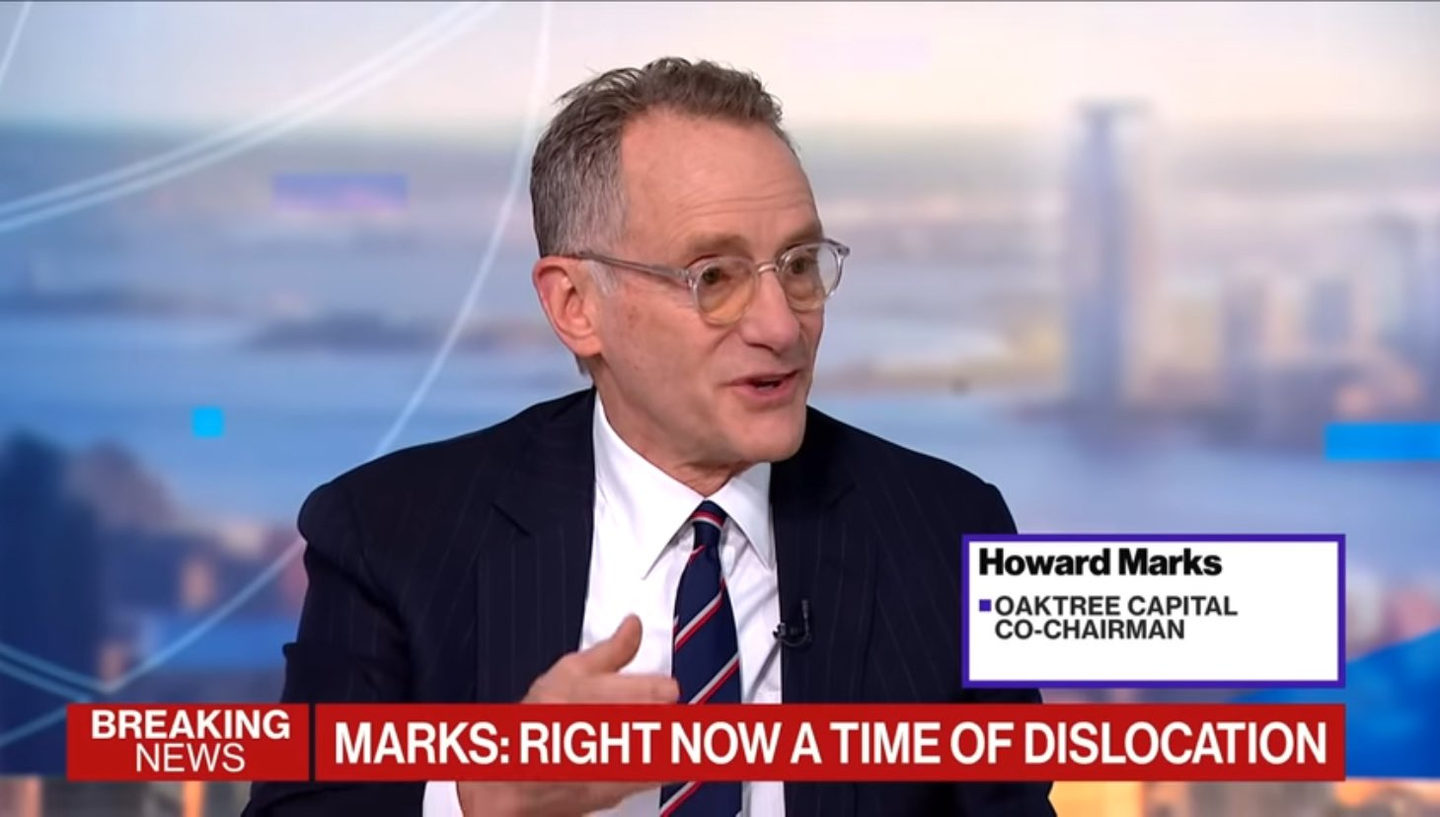作者:Kintsugi Investing
编译:白话区块链

最近,投资界的传奇人物霍华德·马克斯在彭博社的节目中分享了他对当前投资环境的深刻见解。他并没有试图散布恐惧,也没有预测市场的短期走势,而是着重解释了“解放日”如何重新定义我们对投资的思考。
马克斯指出,世界并未走向终结,但投资规则正在发生根本性的变化。过去几十年,投资者一直受益于全球化带来的顺风:贸易开放、供应链高效、商品价格低廉。然而,这一顺风正在逐渐消退。相反,我们正进入一个碎片化的时代。各国正在重新审视贸易政策,关税不断上升,本国生产被优先考虑,即使这意味着更高的成本。这一转变对经济、通货膨胀和资产价格产生了深远的影响。
贸易不仅仅是政治问题,更是经济的引擎。当国家通过专业化和高效贸易实现互利时,所有人都能受益:更低的价格、更高的生产率和更广泛的商品获取。然而,逆转这一趋势是有代价的。全球化最被低估的影响之一,是它在抑制通货膨胀方面的作用。随着全球贸易的扩展,许多商品的成本大幅下降,这对中央银行、消费者和投资者都有益。但当贸易萎缩时,成本压力上升。国内制造业通常意味着更高的工资、更高的投入成本和更低的效率。这并非坏事,但它是通胀性的,改变了我们几十年来依赖的假设。
那么,投资者该如何应对呢?马克斯强调,我们需要重新思考每项投资决策的背景。例如,如果通胀结构性更高,那么估值倍数可能需要向下调整,资本成本上升,折现率再次变得重要。他并不是说“卖掉一切”,而是建议投资者重新校准投资策略,不要在新世界中依赖旧模型。假设均值回归减少,体制变革增加,同时对所承担的风险保持审慎。
另一个关键点是:在这样的环境中,预测是行不通的。我们无法可靠地预测6到12个月后的政策、伙伴关系或权力动态会是什么样子。这不是缺陷,而是现实。如果无法精确预测,那我们能做什么呢?马克斯认为,我们可以依靠概率、定位和价格来锚定。与其试图预测,不如关注资产相对于这一新背景的定价是否合理,然后问自己:“这合理吗?”
当不确定性很高时,纪律显得尤为重要。马克斯建议投资者将波动性视为发现机会的镜头,而不是回避的理由。最好的机会往往出现在他人犹豫不决时,但你必须保持逻辑,而非感情用事。此外,不要将价格下跌与风险上升混淆。市场会打折,这是周期的一部分。关键问题不是“它会跌得更低吗?”而是“我承担的风险是否得到了公平的回报?”
尽管发生了这些变化,马克斯仍然认为美国是一个值得投资的强大地方。它拥有深厚的资本市场、世界级的创新以及法治——虽然在演变,但仍优于大多数替代选择。然而,“自动最佳”的标签已经不再适用。现在需要的是判断,而非理所当然。
霍华德·马克斯没有给出具体的市场预测,他提供的是视角。这一时刻需要的不仅仅是反应,而是重新评估我们如何投资——以及为什么。世界在变化,聪明的投资者将随之调整。
本文链接:https://www.hellobtc.com/kp/du/04/5740.html
来源:https://s.c1ns.cn/60Tz9
免责声明:本文章仅代表作者个人观点,不代表本平台的立场和观点。本文章仅供信息分享,不构成对任何人的任何投资建议。用户与作者之间的任何争议,与本平台无关。如网页中刊载的文章或图片涉及侵权,请提供相关的权利证明和身份证明发送邮件到support@aicoin.com,本平台相关工作人员将会进行核查。




